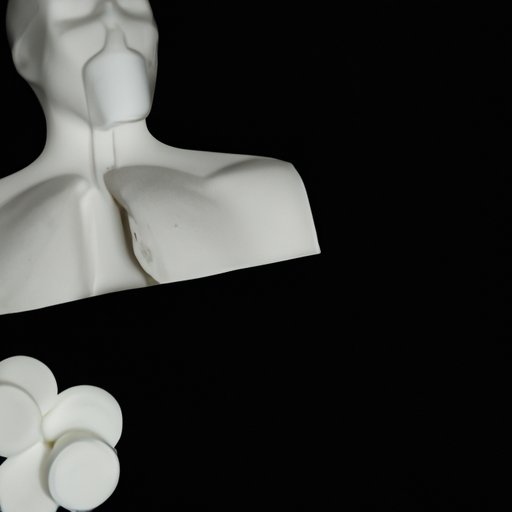I. Introduction
Pneumonia is an inflammatory condition of the lungs typically caused by a bacterial or viral infection. Pneumonia can be a serious and potentially life-threatening illness, which is why understanding its symptoms and treatment options is essential. In this article, we will explore natural remedies, medications, and recovery strategies for treating pneumonia.
II. Understanding Pneumonia: Symptoms, Causes, and Effective Treatment Options
Pneumonia is a lung infection that inflames the air sacs that can fill with fluid or pus. Common symptoms of pneumonia include wheezing, coughing, fever, chills, shortness of breath, and chest pain.
The most common causes of pneumonia include bacteria, viruses, fungi, and various chemical irritants. In the case of bacterial pneumonia, antibiotics are typically the most effective treatment option. However, for viral pneumonia, rest and plenty of fluids are needed to let the immune system fight off the infection.
Other effective treatment options for pneumonia include antiviral medications, oxygen therapy, and bronchodilators. If you experience severe pneumonia symptoms or have a compromised immune system, hospitalization may be required.
III. Natural Remedies for Pneumonia: Healing from the Inside Out
While traditional medications can be helpful in treating pneumonia, natural remedies can also be effective in speeding up the healing process. Some natural remedies worth exploring include:
– Herbal remedies such as echinacea, garlic, and licorice root
– Vitamins and supplements such as vitamin C, vitamin D, and zinc
– Tips for eating and drinking, such as staying hydrated, consuming warm broths or soups, and avoiding alcohol and caffeine
– Natural remedies for symptom relief include using warm compresses and taking warm baths. We recommend consulting with your healthcare provider before incorporating any natural remedies into your treatment plan.
IV. Pneumonia Medications: A Comprehensive Guide to Antibiotics and Other Drugs
The standard treatment for bacterial pneumonia is antibiotics. Common antibiotics prescribed for pneumonia include azithromycin, amoxicillin, and ceftriaxone. It is essential to finish the full course of antibiotics prescribed by your healthcare provider, even if your symptoms improve before the treatment is completed.
Other medications prescribed for pneumonia include antivirals and corticosteroids. Antiviral medicines are only effective at treating viral pneumonia while corticosteroids help to reduce inflammation in the lungs. It is important to note that all medications prescribed by your healthcare provider may have side effects, so it’s important to discuss any concerns or symptoms with them.
V. Recovering from Pneumonia: Strategizing Your Rest and Self-Care
Rest is essential to allow your body to recover from pneumonia. You should avoid any physical activity that can put a strain on your body and lungs. Additionally, self-care strategies such as following a healthy diet and maintaining good hygiene can also help to boost your immune system and speed up the healing process.
Following a nutritious diet with plenty of fruits and vegetables can provide your body with the necessary nutrients to fight off infection. Also, maintaining good hygiene, including washing your hands frequently and disinfecting common surfaces can reduce the risk of spreading the infection.
It is important to continue follow-up care with your healthcare provider during your recovery process and complete any prescribed treatments.
VI. Preventing Pneumonia: Staying Healthy and Boosting Your Immune System
The best way to prevent pneumonia is by leading a healthy lifestyle. Some tips for preventing pneumonia include:
– Wash your hands frequently
– Stay away from people who are sick
– Avoid smoking and exposure to smoke
– Get a flu vaccine each year
Besides these tips, leading a healthy lifestyle that includes regular exercise, a nutritious diet, and plenty of sleep can help boost your immune system and reduce the risk of getting pneumonia.
VII. When to Seek Medical Attention for Pneumonia: Understanding Severity Levels and Emergency Situations
If you have the symptoms of pneumonia, it is essential to seek medical attention quickly. Seeking medical attention immediately is especially important if you are at high risk for severe illness due to factors such as age or a weakened immune system.
If your symptoms are severe or you have trouble breathing, you should immediately seek emergency medical attention. It is better to be safe than sorry, and prompt medical attention could save your life.
VIII. Conclusion
Pneumonia is a serious condition that can be life-threatening, and it is essential to seek medical attention if you experience symptoms. Treatment options for pneumonia include traditional medications, natural remedies, and self-care strategies such as rest and nutrition. The best way to prevent pneumonia is by leading a healthy lifestyle, and knowing when to seek medical attention is also critical. With proper care, most people recover fully from pneumonia and regain their normal health.
